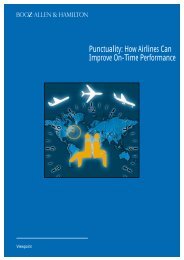The sentence
The sentence
The sentence
You also want an ePaper? Increase the reach of your titles
YUMPU automatically turns print PDFs into web optimized ePapers that Google loves.
Apostrophe s(‘s) or compound noun?<br />
1. We use apostrophe s (‘s) and s apostrophe (‘s) with people and some living things to show<br />
possession: Gus’s car, the girls’ shoes, a dog’s bark.<br />
2. When we want to show possession with things, we can use of: the leg of the table.<br />
However, we often prefer to use a compound noun instead of of: the table – leg.<br />
3. We can say the voice of a man or a man’s voice. (Not *a man voice*)<br />
We can say the leg of a table or a table – leg. (Not *a table’s leg*)<br />
Compound nouns which tell us about materials and substances<br />
1. Names of materials and substances (leather, gold) are like adjectives when we use them to<br />
form compound nouns: a watch made of gold –a gold watch. (Not *golden*)<br />
<strong>The</strong>se words behave like adjectives in this one way, but they remain nouns because they<br />
do not have comparative or superlative forms and we cannot put very in front of them.<br />
We stress both words in spoken English: I can’t afford a ‘gold’ watch.<br />
2. Two important exceptions are wood and wool, which have adjectival forms:<br />
a table made of wood – a wooden table; a dress made of wool – a woollen dress.<br />
3. <strong>The</strong>re are adjectival forms for words like gold; glass/glassy, gold/golden,<br />
leather/leathery, silver/silvery, silk/silky/silken, steel/steely, stone/stony.<br />
We use them to mean ‘like’; a golden sunset (= a sunset like gold).<br />
C. Countable and uncountable nouns<br />
Countable and uncountable nouns compared<br />
1. If a noun is countable:<br />
a. we can use a/an in front of it: I bought a book. (Not *I bought book*)<br />
b. it has a plural and can be used in questions with How many? How many books …?<br />
c. we can use a number in front of it: one book, two books.<br />
2. If a noun is uncountable:<br />
a. we do not normally use a/an in front of it: I bought some bread. (Not *a bread*)<br />
b. it does not normally have a plural and can be used in questions with How much?:<br />
How much bread …? (Not *How many breads?*)<br />
c. we cannot normally use a number in front of it.<br />
3. We need to know whether nouns are countable or uncountable in English to be able to use<br />
a/an, some, any, much, many, a few, a little, etc. correctly.<br />
Compare: It was a marvellous experience. (countable = something that happened)<br />
We need someone with experience. (uncountable = skill and knowledge)<br />
Normally uncountable nouns used as countable (1): ‘a coffee/(some) coffee’<br />
1. Words for drinks like coffee are normally uncountable. This means:<br />
- we use no article: Coffee is important to the economy of Brazil.<br />
- or we use some/any: Is there any coffee? I’d like some coffee, please.<br />
13




